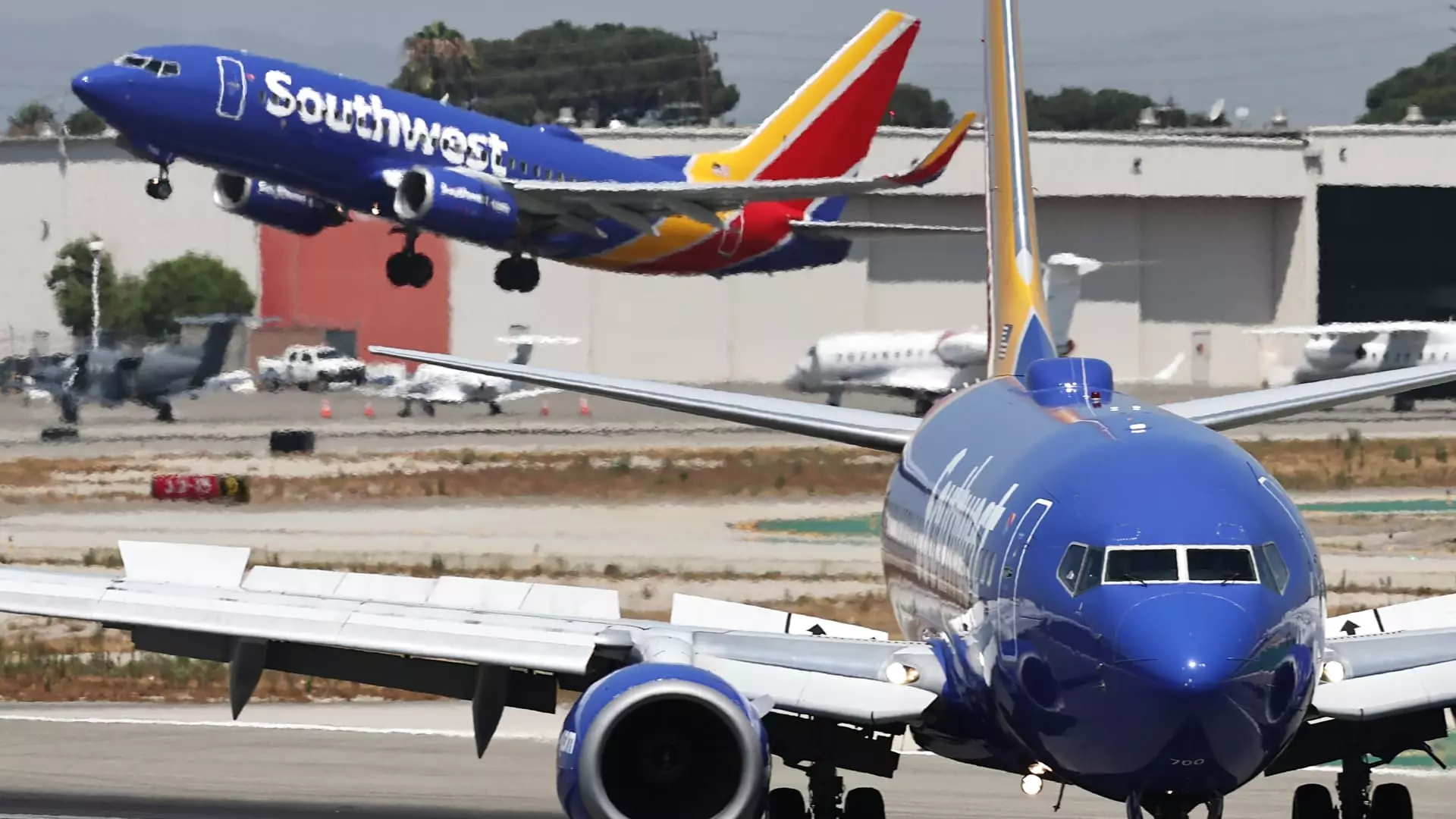In a bold move earlier this week, Southwest Airlines announced significant adjustments to its business strategy, responding to both internal pressures and external market dynamics. With a focus on enhancing profitability while retaining its customer-centric ethos, the airline has outlined an optimistic revenue forecast for the third quarter and set the stage for transformative changes within its operations. These developments come amidst growing scrutiny from activist investors, particularly Elliott Investment Management, pushing for a reevaluation of leadership and operational practices.
On Thursday, Southwest Airlines boldly revised its revenue outlook for the third quarter, now projecting an increase in unit revenue by as much as 3% compared to the previous year. This adjustment marks a notable turnaround from earlier forecasts that hinted at declines, driven largely by the airline’s strategic positioning during July’s unexpected CrowdStrike outage, which affected several competitors and led to a wave of rebooked passengers onto Southwest flights.
The reassessment of revenue projections signals a significant alignment of operational strategies and market conditions that Southwest is aiming to capitalize on. As travel demand continues to rebound post-pandemic, such positive adjustments will be crucial for the airline in regaining market confidence and investor support.
In tandem with its optimistic revenue outlook, Southwest has made noteworthy moves at the board level by appointing industry veteran Bob Fornaro, previously the CEO of Spirit Airlines, to its board of directors. This is an important strategic decision, as Fornaro’s extensive experience in the airline industry should provide valuable insights and guidance as Southwest navigates its impending changes. Notably, Fornaro’s relationship with Southwest dates back over a decade, including his significant role during the merger with AirTran.
Southwest’s board reshuffle seems to be a responsive tactic to Elliott’s ongoing calls for leadership change. This proactive approach not only addresses immediate investor concerns but also reinforces Southwest’s commitment to long-term strategic planning with experienced hands steering the decisions forward.
The recent investor day presentation revealed Southwest’s ambitious plans to reshape its traditional business model that has been in place for over fifty years. Central to these changes is the introduction of assigned seating and extra-legroom options, intended to enhance customer experience while simultaneously tapping into new revenue streams. While these changes may not manifest immediately—extra legroom seats are not slated for introduction until 2026—Southwest anticipates substantial financial returns, estimating a potential earnings boost of $1.7 billion by 2027.
Such significant alterations recognize the shifting landscape of the airline industry, where consumer preferences increasingly favor comfort and convenience, and a competitive edge often hinges on the ability to adapt quickly. Yet, despite the vision, the airline acknowledges the logistical challenges that lie ahead, including FAA approvals and aircraft retrofitting.
Significantly, Southwest has reaffirmed its commitment to a longstanding policy that permits passengers to check two bags for free. This decision is indicative of the airline’s strategy to prioritize customer loyalty over potential revenue from baggage fees. By continuing to position itself as a value-driven airline in an increasingly competitive market, Southwest aims to strengthen its market share and differentiate itself from other carriers that lean toward monetizing every service.
This commitment has not only defined Southwest’s brand identity but has also become a critical part of its appeal, attracting both leisure and business travelers who appreciate transparent pricing models.
Despite these strategic advancements, the airline faces challenges, particularly regarding the shortfall of new aircraft due to ongoing delays with Boeing, including the certified 737 Max 7. As a result, Southwest has made cuts to routes that previously operated at a loss, underscoring the necessity for adaptable strategies in a market characterized by rapid fluctuations.
The looming departure of executive chairman Gary Kelly by the end of next year adds another layer of complexity to the leadership landscape. In the face of these operational and executive shifts, it remains imperative for Southwest Airlines to foster resilience and innovation that not only addresses current demands but also positions it favorably for future growth.
While Southwest Airlines is charting a course for transformative growth, the intersection of strategic innovation, a commitment to customer experience, and prudent financial management will ultimately dictate its success in the ever-evolving airline industry. The road ahead is fraught with challenges, but the airline’s proactive measures indicate a readiness to adapt and thrive amid pressures and opportunities.



Leave a Reply